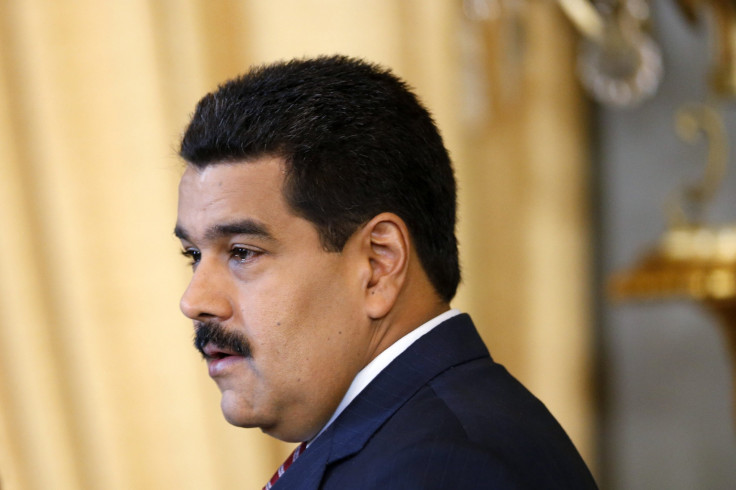Falling Oil Prices Threaten Venezuelan Economy With Default

Venezuela is juggling yet another economic problem as plummeting oil prices this week threaten to squeeze Caracas’ main source of revenue. The added pressure on Venezuela’s economy heightens some fears that the country may be on the brink of default.
Harvard economists Carmen Reinhart and Kenneth Rogoff predicted this week that Venezuela would likely default on its foreign debt. “They have extensive domestic defaults and an economy that is really imploding,” Reinhart told Bloomberg.
Global crude oil prices are plunging. The price of a benchmark U.S. crude oil, West Texas Intermediate, dropped to about $80 on Thursday, a four-year-low, due in part to slowing demand and rising oil production, particularly in the United States. Venezuelan crude oil is of a lower quality than West Texas Intermediate and thus sells for less.
Last week, Venezuela’s former Energy Minister Rafael Ramirez called for an emergency OPEC meeting to try and keep prices stable. Some analysts believe Venezuela needs oil to remain sold at more than $120 a barrel for its economy to stay afloat, although Bank of America economist Francisco Rodriguez told the Financial Times it could survive on prices as low as $60 a barrel, provided the country's Socialist government made some hard economic choices at home.
Some analysts have worried for months that Venezuela was on the brink of a default. President Nicolas Maduro has been grappling with chronic shortages, soaring inflation and a dearth of foreign currency that has hit importers particularly hard. In recent months, he has tried to curb some of these problems by cracking down on smuggling at the border, floating an increase in gas prices (currently the world’s cheapest), making moves toward the sale of U.S.-based oil subsidiary Citgo and trying to stabilize currency exchange markets. But Caracas-based consultancy Ecoanalitica estimated that Venezuela still owed about $21 billion to domestic companies and airlines.
Oil makes up around 95 percent of Venezuela’s export revenue, and Caracas has used its extensive oil reserves to sell it at preferential prices to allies in the region. But the state-owned oil company, Petroleos de Venezuela S.A., has been accused of mismanagement and a bloated payroll. Venezuela reportedly began importing crude oil from Algeria this week.
Maduro assured the public that Venezuela’s economy and oil-funded social programs would be buffered from the effects of falling oil prices. “We have made provisions for any scenario,” he said during a meeting of the Council of Ministries on Thursday.
© Copyright IBTimes 2024. All rights reserved.












